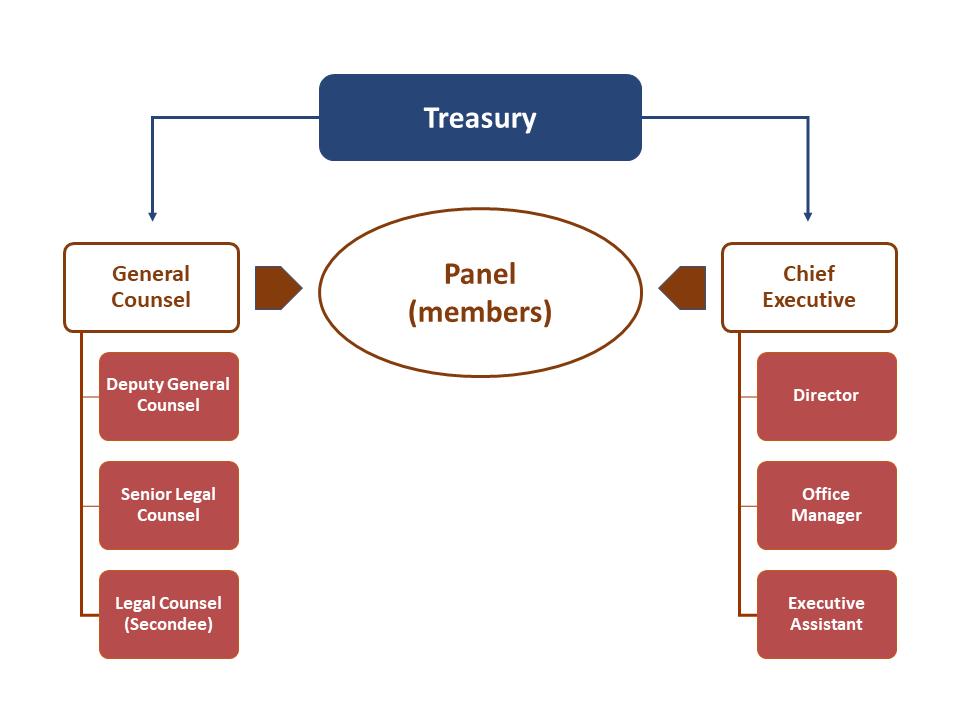Great Info About What Do Panel Members

Our Structure Takeovers Panel
Understanding the Role
1. The Core Responsibilities
Ever wondered what goes on behind the scenes when a panel of experts convenes? It's not just a bunch of serious-looking people nodding sagely (though, admittedly, there might be a little of that). Panel members play a vital role in various fields, from academic research and grant reviews to corporate decision-making and even game shows! Their primary function is to provide informed and unbiased assessments, contributing their expertise to reach well-rounded conclusions. Think of them as the ultimate brainstorming squad, armed with knowledge and a commitment to objective evaluation.
At its heart, the role of a panel member involves careful evaluation. They're tasked with scrutinizing information, whether it's a research proposal, a product concept, or a candidate's qualifications. This evaluation isn't just a quick glance; it requires a deep dive into the details, considering different perspectives, and weighing the strengths and weaknesses. Its like being a detective, but instead of solving a crime, theyre solving a problem or making a judgment call.
Furthermore, panel members engage in collaborative discussions. They share their individual assessments, challenge assumptions, and work towards a consensus. This collaborative aspect is crucial because it allows for a more comprehensive understanding of the issue at hand. Imagine a lively debate, where everyone brings their A-game to the table, ready to defend their point of view (respectfully, of course!).
Finally, a key part of the panel members job is providing feedback. After all the evaluation and deliberation, they summarize their findings and offer recommendations. This feedback is invaluable for those who are being evaluated, as it provides insights into areas for improvement and helps to guide future decisions. So, really, panel members are playing a part in helping someone, or something, be better.

The Judge Said What? How A Judge's Bias Can Infect Judicial Proceedings
Delving Deeper
2. Panels in Action Across Industries
The influence of panel members stretches far and wide, touching numerous sectors and influencing critical decisions. In the realm of academia, they review grant applications, ensuring that research funding is allocated to the most promising and impactful projects. This role is vital for driving innovation and advancing our understanding of the world. Think of them as the gatekeepers of scientific progress, carefully selecting the ideas that deserve to be nurtured.
In the corporate world, panels might assess new product ideas, evaluate marketing campaigns, or even help to resolve internal disputes. Their objective perspective can be invaluable in helping companies make strategic decisions and avoid costly mistakes. They're like the trusted advisors who can see the forest for the trees, offering a fresh perspective and preventing groupthink.
Government agencies also rely on panels to inform policy decisions. Experts in various fields are called upon to provide insights on issues ranging from healthcare and education to environmental protection and national security. These panels play a crucial role in shaping public policy and ensuring that decisions are based on the best available evidence. They are essentially helping shape our future and the kind of world we live in.
Even entertainment benefits from panel expertise! Consider the judging panels on talent shows or the review boards that rate movies and video games. These panels provide valuable feedback and guidance to artists and creators, helping them to refine their work and reach a wider audience. Theyre like the helpful critics that steer content and entertainment towards the audience.

Essential Skills for Effective Panel Membership
3. Qualities That Make a Difference
Being an effective panel member isn't just about possessing expertise in a particular field; it also requires a specific set of skills. Critical thinking is paramount, as panel members must be able to analyze information objectively, identify biases, and draw logical conclusions. They need to be able to separate fact from fiction and weigh the evidence before making a judgment. It's like having a built-in BS detector!
Communication skills are equally important. Panel members must be able to articulate their ideas clearly and concisely, both in writing and verbally. They need to be able to explain complex concepts in a way that is easy for others to understand, and they must be able to engage in constructive dialogue with their fellow panel members. Think of it as being able to translate expert knowledge into plain English.
Objectivity and impartiality are also crucial. Panel members must be able to set aside their personal biases and opinions and make decisions based solely on the evidence. This can be particularly challenging when dealing with controversial topics or when evaluating projects that are closely aligned with their own interests. Its about being able to see things clearly and fairly.
Finally, a collaborative spirit is essential. Panel members must be willing to listen to and learn from their colleagues, and they must be able to work together effectively as a team. This requires a willingness to compromise and to find common ground, even when there are disagreements. It's about remembering that the goal is to reach the best possible outcome, even if it means setting aside personal preferences.

PPT Introduction Of Panel Members PowerPoint Presentation, Free
The Selection Process
4. Earning a Seat at the Table
So, how does one actually become a panel member? The process can vary depending on the organization and the type of panel, but there are some common elements. Typically, organizations seek out individuals who have recognized expertise in a particular field. This expertise might be demonstrated through academic credentials, professional experience, publications, or other forms of recognition. Its a bit like showing off your skills and knowledge in a resume, but more specific.
In addition to expertise, organizations also look for individuals who have a reputation for integrity and objectivity. They want panel members who can be trusted to make fair and unbiased decisions. This might involve checking references or conducting background checks. Its similar to a job interview, where they assess if you're suitable for the panel.
Often, there's an application process that involves submitting a resume or CV, a statement of interest, and sometimes even writing samples. This allows the organization to assess the applicant's qualifications and communication skills. Think of it as putting your best foot forward, highlighting why you're the perfect fit for the panel.
Finally, many organizations conduct interviews to get a better sense of the applicant's personality and fit with the panel. This is an opportunity for the applicant to demonstrate their critical thinking skills, communication skills, and collaborative spirit. It's your chance to shine and convince them that you're the right person for the job. If they see that you have the expertise and are unbiased, you are well on your way.

Ethical Considerations
5. Upholding Standards of Conduct
Ethical considerations are at the heart of effective panel work. Panel members have a responsibility to act with integrity and to avoid any conflicts of interest. This means disclosing any relationships or affiliations that could potentially influence their judgment. If you know one of the candidates, you should let them know.
Confidentiality is another important ethical consideration. Panel members are often privy to sensitive information, and they must be able to keep this information confidential. This includes not discussing the panel's deliberations with anyone outside of the panel and not sharing confidential documents or data. Imagine it like keeping a secret that is vital.
Respect for others is also essential. Panel members should treat each other with respect, even when they disagree. This includes listening to opposing viewpoints, avoiding personal attacks, and engaging in constructive dialogue. It's about maintaining a professional and collaborative environment.
Finally, panel members have a responsibility to recuse themselves from any decisions where they have a conflict of interest. This means stepping aside from a particular evaluation or decision if they have a personal or financial stake in the outcome. It's about ensuring that the decision is made fairly and impartially.

Board Members Of An Organization Presentation Graphics
Frequently Asked Questions About Panel Members
6. Your Questions Answered
Here are some common questions about the roles and responsibilities of panel members:
7. What qualifications are typically needed to become a panel member?
While it varies depending on the field and the specific panel, a strong track record of expertise in the relevant area is almost always essential. This could involve academic credentials, professional experience, publications, or other forms of recognition. Furthermore, a reputation for integrity, objectivity, and strong communication skills are highly valued.
8. How much time commitment is involved in being a panel member?
The time commitment can vary greatly depending on the panel's scope and frequency of meetings. Some panels meet only a few times a year, while others may require a more substantial time investment. It's important to clarify the time commitment before agreeing to serve on a panel.
9. Are panel members typically compensated for their time and effort?
Compensation policies vary. Some panels are composed of volunteers, while others offer a stipend or honorarium to compensate members for their time and expenses. The compensation amount may depend on the complexity of the panel's work and the time commitment involved. Be sure to ask about compensation before agreeing to participate.
10. What happens if a panel member disagrees with the majority opinion?
Disagreement is a natural part of the panel process. Panel members are encouraged to express their dissenting opinions respectfully. The final report or decision should reflect the diversity of perspectives and acknowledge any dissenting viewpoints.